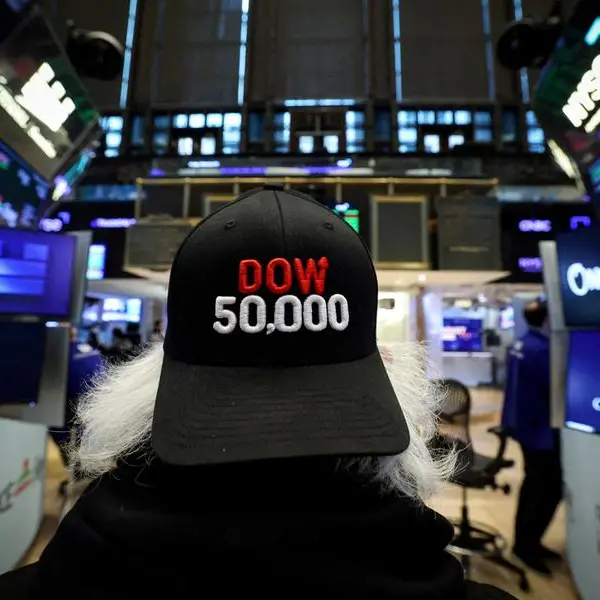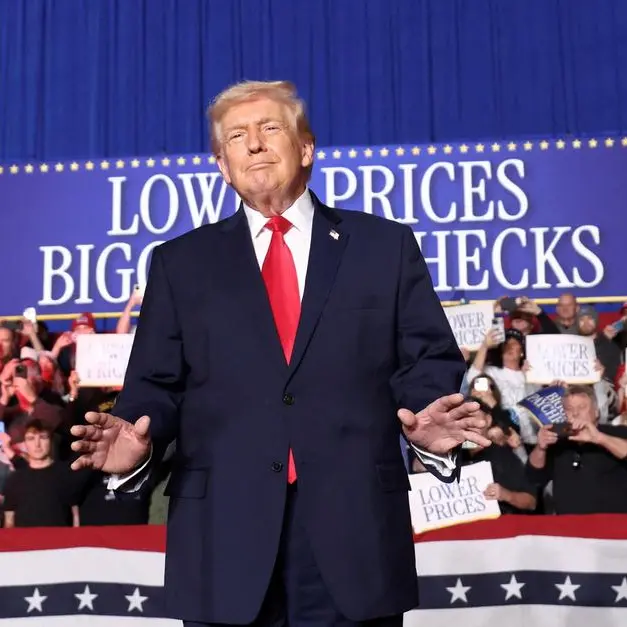PHOTO
A tumble in the heavyweight stocks that have powered markets higher this year is highlighting Wall Street's vulnerability to any weakness in the Big Tech trade and causing concerns that over-stretched stocks are in for more turbulence.
Disappointing quarterly reports from Tesla and Google-parent Alphabet sparked a crushing market selloff on Wednesday, with the tech-heavy Nasdaq Composite falling 3.6% in its worst day since October 2022. The benchmark S&P 500 slumped 2.3%, with the earnings reports causing concerns about upcoming results from the other big tech firms.
"This was the hair trigger for people saying, 'Wow, I've got way too much exposure to information technology and growthier type companies,'" said Thomas Martin, senior portfolio manager at GLOBALT, about Tesla's results, after the electric vehicle automaker posted its lowest quarterly profit margin in five years. "The trade ... is to get more diversified."
The rout comes after optimism about artificial intelligence technology fueled a months-long rally in a handful of massive technology and growth companies including chipmaker Nvidia , Microsoft and Amazon, pushing the S&P 500 to record highs this year.
The megacap stocks - dubbed, with Meta Platforms and Apple, the Magnificent Seven - have accounted for around a third of the S&P 500's 14% gain in 2024, making their trajectories a key factor in how broader markets will perform.
As share prices soared, concerns grew over companies' stretched valuations and comparisons to the dotcom bubble of more than two decades ago became more frequent. The S&P 500 is trading near 22 times expected earnings, its highest in over two years, and well above its 10-year average of 18, according to LSEG data.
Signs of nervousness around tech stocks began to creep up in recent weeks, as the blistering rally in many of the market leaders seemed to run out of gas. One signal came from the rise in the Cboe Volatility Index, known as Wall Street's fear gauge because it measures demand for portfolio protection. The measure shot to its highest level in three months on Wednesday.
Hedge funds have been reducing their exposure to markets for the last two weeks, prime brokers at both Goldman Sachs and Morgan Stanley said in notes last week, amid fears that gains from earlier this year could evaporate if sentiment around tech stocks changed.
Andrew Volz, chief operating officer at prime broker Clear Street, said hedge funds continued to deleverage their portfolios on Wednesday, selling long positions and covering bearish bets.
"There were definitely general liquidations of things like Nvidia, Tesla, all the big seven tech companies," said Volz.
EARNINGS OPTIMISM OVER-DONE?
Though the S&P 500 is still just 4% below an all-time high hit earlier this month, some investors worry that Wall Street may have become too optimistic about earnings growth, leaving stocks vulnerable if companies are unable to meet expectations in coming months.
One example could be seen on Wednesday, when Alphabet's shares fell more then 5%. While the company reported better-than-expected revenues, investors grew wary that rising investments in AI infrastructure would squeeze margins and YouTube was facing tough competition for ad dollars.
"We set the bar too high on earnings," said Jake Dollarhide, chief executive officer of Longbow Asset Management. "Even Alphabet's earnings beat, but the market obviously wasn't impressed and they didn't beat by enough."
Many other Magnificent Seven stocks saw sharp declines on Wednesday. Tesla shares fell more than 12% in their worst daily drop since 2020, while Nvidia's lost 6.8%. Microsoft shares fell 3.6% and Apple lost 2.9%.
Wednesday's selloff is likely to leave investors on tenterhooks in coming weeks, as more tech earnings come in. Meta, Microsoft and Apple are all scheduled to report next week, potentially ramping up volatility if any one of them disappoints or assuaging investor fears if the results are strong.
"We're in a little bit of a pullback. But to me, it's really just a short-term thing," said Tim Ghriskey, senior portfolio strategist at Ingalls & Snyder in New York. "If we see some good numbers in the coming days, it could reverse just as quickly."
(Reporting by Noel Randewich, Stephen Culp, Carolina Mandl and Alden Bentley; Writing by Ira Iosebashvili; Editing by Megan Davies and Christopher Cushing)





















